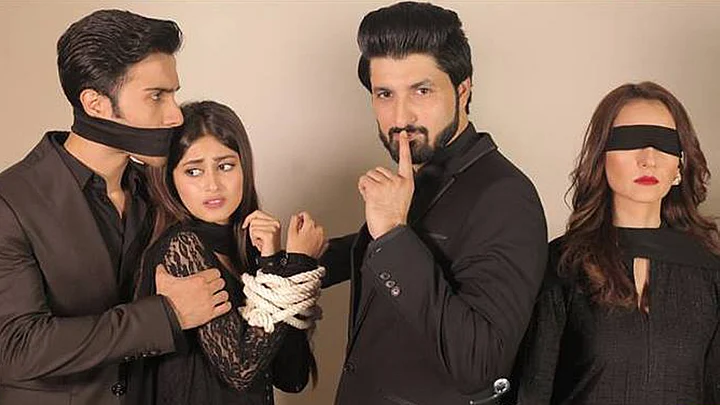For popular culture, it’s a formula now. A sexually titillating woman (by virtue of which she attracts attention), a cliché narrative and, for that extra emotional punch, a rape scene.
And if a lot of hindi films are to be believed, most of these women turn hysterical, almost subhuman-mad after the attack. The result? A lot of manufactured sympathy from the audience.
Which is why Pakistani television dramas addressing the issue of rape and sexual assault beyond the logic of an overused, often misused ritual, gave us another reason to applaud them.
From Peripheral Characters To Protagonists
Portrayals of rape in fiction have had us thinking that it never happens to the central character, male or female, and that somehow they are immune to it.
This is problematic, not only because rape or sexual assault cannot be a trope to be used selectively on peripheral characters, but also because it’s a heinous reality in the South-East Asian subcontinent.
According to a Human Rights Watch study, a rape is reported once every two hours in Pakistan, which is indicative of how important a media narrative around it is.
Taking this argument head on are Pakistani shows like Kaafir (known as Izzat on Zindagi channel), Paani Jaisa Pyaar, Roag and Chup Raho.
Instead of using rape loosely, almost as a trick to bring in a “social issue” into the script, some of these shows are talking of sexual violence with the sensitivity it deserves.
While Kaafir is a story of a strong-headed protagonist, Izzat, who seeks revenge on her rapist by fearlessly exposing him , a show like Ladki Hona Gunah Nahi deals with a rape survivor, who seeks a divorce from her husband after repeatedly being victim-blamed, and starts her own boutique as a means of financial stability.
In an otherwise “conservative” Pakistan, television dramas addressing the lives of rape survivors and their personal journeys is subversive in its own way. Especially if contrasted with the preoccupation with Ichchadhaari naagins and (now) gorillas on Indian television.
While shows are now talking of sexual assault and the stories of women afterwards, are they treating the narrative of rape in a responsible manner, or implicitly feeding into real-life misconceptions?
The Victim-Blaming Syndrome Continues
In Paani Jaisa Pyaar, Sana, the protagonist is brutally raped by her brother’s best friend and is married off as almost a knee-jerk reaction, with the family grateful that the husband “accepted” her.
And that is not even the most baffling part.
Sana is not only victim-blamed and portrayed as helpless, but her husband tells her that she wasn’t raped at all and that she indulged in the “act” with consent. In a particular episode, she is also beaten until hospitalised.
The worst part? The show ends on a “happy” reconciliation, with Sana accepting her husband back. The acceptance ran a full circle, as did our worst fears about the show.
The show not only re-inscribed the misunderstood notion of consent, it also actively normalised rape and sexual violence as a prerequisite towards a happy ending.
Some of the shows, while touching upon the subject, end up legitimising rape rather than dismantling it. An unfortunate example of which is Sangat.
The show ends up falling prey to more that one dangerous stereotype.
The woman’s family is shattered, her relationships fall apart and she is left to be treated as a victim on whose shoulders the responsibility of saving the “family’s honour” falls.
The show also manages to weave a web of defence for the rapist, portraying him with a hero-like desirability which is cringe-worthy. His “difficult” childhood is conveniently given as the rationale behind rape, all the while creating problematic sympathy for him.
The fact that rape is about power and control is diluted by an ensuing logic in the show that it’s about the rapists’s obsessive love for the woman that got him “out of control.” Rape is constantly equated with a “mistake”, and the woman constantly told to shut up about it and move on.
Superficially Addressing the Issue Isn’t Enough
Making sexual assault look normal, blaming the woman for it or relegating it to a space of a “sin” or a “mistake” feeds into already existent falsehoods about sexual violence.
They can go on to encourage people into committing these acts, for they have been redefined as socially acceptable. A formula of reinforcing misconceptions about rape actually actively enables sexual assault.
The fact that some Pakistani shows are addressing the issue of rape is a start, yes. But it cannot undo an emerging trend that revels in romanticising the rapist, portraying assault as a precursor to romance and reconciling love with sexual violence.
(At The Quint, we question everything. Play an active role in shaping our journalism by becoming a member today.)
